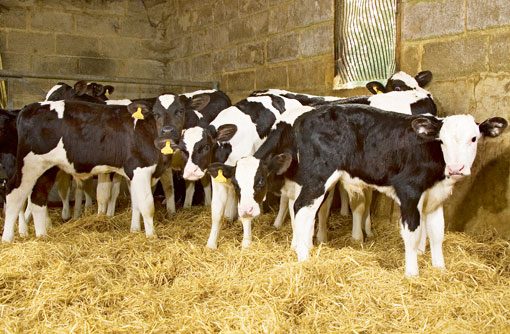Dairy farmers – join the stewardship cause

Dairy farmers have always delivered much more than milk. The other goods and services that sustainable stewardship of the land provides, and which consumers value, are the views, the soils, the water, the wildlife. I believe that they should be rewarded for them all.
Stewardship is a good base to build from. Already some milk buyers are insisting the producers have stewardship agreements to help market their milk using their environmental credentials. That’s another positive step.
Modern dairy farming is a highly specialised industry; it’s a capital intensive business and has a high gross margin per hectare. So on the face of it, stewardship payments of £30/ha may appear less attractive. However, they provide a consistent source of income and it is possible to accommodate around specialist dairy systems, as the 5,000 in stewardship already demonstrate, including our own family farm carrying a 600 cow herd. We’ve signed up to an Entry Level Scheme and this year we agreed to a RSPB bird survey too – 59 species were identified.
The 5,000 dairy farmers already in stewardship schemes represent approximately 60% of the total in England and approximately 600,000ha of land.
So far so good. But what of the future? CAP reform is the big issue – and all the early signs from the negotiations suggest that both our government and the EU want to see European agriculture more globally competitive, producing more and having less of an impact on the environment. Farmers should welcome this approach. It offers the only long-term exit strategy from an unhealthy reliance on public subsidy.
These reforms also offer the tantalising opportunity to put a system in place that recognises and rewards farmers for all the environmental goods and services they provide – the food and the milk, the wildlife and the views, the carbon stored and the water retained, the woodland planted and the soils protected.
If you’ve yet to sign up for a stewardship agreement, then I’d urge you to invite us to get in touch to find out how we can make the scheme suit your holding. We’ve a network of experienced local land management advisers, many from farming families or backgrounds, who can help you pick the right options for your farm – useful options such as “whole crop cereals for silage”, “maize management to reduce soil erosion and run off”, or “maintenance of water-course fencing”.
We’ll also offer free support and advice to ELS agreement holders. Dairying is a specialised skill – arable farmers often find it easier to switch from winter wheat to wild bird seed mix, or pollen and nectar mixes. Their skills transfer more easily and they’ve got the kit. However, we are helping dairy farmers by offering free advice and training visits and from the autumn, farm walks and workshops.
We’ve been running agri-environment schemes – Countryside Stewardship, Environmentally Sensitive Area schemes and now Environmental Stewardship – for more than 20 years. We know that the secret to success lies in understanding the local lie of the land, how farm businesses work, the impact of market imperatives, and the need for a little flexibility.
We can always do more to get better, to listen to what people are telling us, and to make changes accordingly. You’ve got to remember that Environmental Stewardship funding comes from CAP with all its attendant rules and requirements, so change is not always quick or straightforward. That’s frustrating for farmers, and it’s frustrating for us. What we can do is work more closely with farmers to help make our schemes as responsive and flexible as possible.
That brings us to the Campaign for the Farmed Environment. It’s got a vital role to play and brings a welcome local emphasis to tackling some of the environmental challenges out there. Using local expertise and experience is the right way to go. Importantly it is an industry-led initiative – a new model where farmers are trusted not told what to do.
Dairy farmers might not have been the primary audience for the CFE, but we can still make a contribution. It’s a huge opportunity to show what can be achieved with the right partnership in place, and I’d urge all to play your part. We have to make this work. No one wants to see the stick of regulation return.
For further information on Environmental Stewardship visit www.naturalengland.org.uk or call 0300 060 0011.
